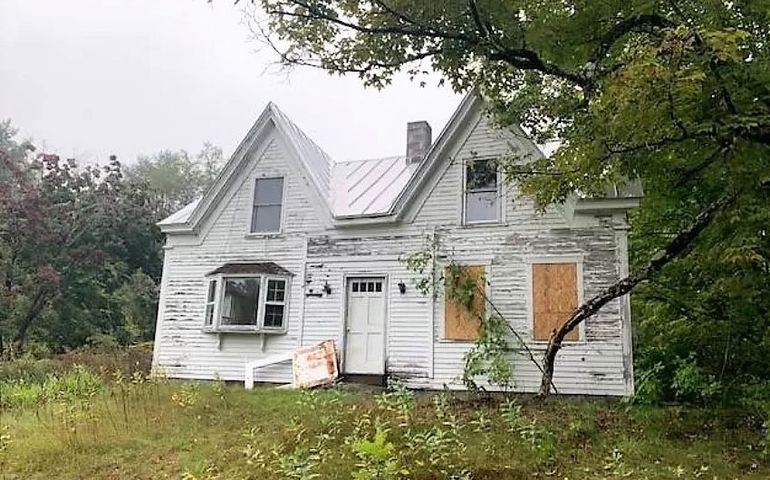Processing Your Payment
Please do not leave this page until complete. This can take a few moments.
- News
-
Editions
-
- Lists
-
Viewpoints
-
Our Events
-
Event Info
- Business Leaders of the Year Reception 2025
- Women's Leadership Forum 2025
- On the Road with Mainebiz in Bethel
- Health Care Forum 2025
- On The Road with Mainebiz in Greenville
- On The Road with Mainebiz in Waterville
- Small Business Forum 2025
- Outstanding Women in Business Reception 2025
- On The Road with Mainebiz in Bath
- 60 Ideas in 60 Minutes Portland 2025
- 40 Under 40 Awards Reception 2025
- On The Road with Mainebiz in Lewiston / Auburn
- 60 Ideas in 60 Minutes Bangor 2025
Award Honorees
- 2025 Business Leaders of the Year
- 2024 Women to Watch Honorees
- 2024 Business Leaders of the Year
- 2023 NextUp: 40 Under 40 Honorees
- 2023 Women to Watch Honorees
- 2023 Business Leaders of the Year
- 2022 NextUp: 40 Under 40 Honorees
- 2022 Women to Watch Honorees
- 2022 Business Leaders of the Year
-
-
Calendar
-
Biz Marketplace
- News
- Editions
- Lists
- Viewpoints
-
Our Events
Event Info
- View all Events
- Business Leaders of the Year Reception 2025
- Women's Leadership Forum 2025
- On the Road with Mainebiz in Bethel
- Health Care Forum 2025
- On The Road with Mainebiz in Greenville
- + More
- On The Road with Mainebiz in Waterville
- Small Business Forum 2025
- Outstanding Women in Business Reception 2025
- On The Road with Mainebiz in Bath
- 60 Ideas in 60 Minutes Portland 2025
- 40 Under 40 Awards Reception 2025
- On The Road with Mainebiz in Lewiston / Auburn
- 60 Ideas in 60 Minutes Bangor 2025
- - Less
Award Honorees
- 2025 Business Leaders of the Year
- 2024 Women to Watch Honorees
- 2024 Business Leaders of the Year
- 2023 NextUp: 40 Under 40 Honorees
- 2023 Women to Watch Honorees
- 2023 Business Leaders of the Year
- + More
- 2022 NextUp: 40 Under 40 Honorees
- 2022 Women to Watch Honorees
- 2022 Business Leaders of the Year
- Nomination Forms
- Calendar
- Biz Marketplace
Zombie apocalypse? With vacant foreclosures up, real estate revenants are on the rise
 Courtesy / Trulia
This vacant three-bedroom farmhouse in Solon went to a foreclosure auction last October.
Courtesy / Trulia
This vacant three-bedroom farmhouse in Solon went to a foreclosure auction last October.
The undead have returned to Maine’s residential real estate market.
The number of Maine homes sitting vacant while in foreclosure jumped 174% over the past year, according to a report released Thursday by ATTOM, a national real estate data-tracking company.
Although the number of these so-called zombie homes is relatively small — 63 in the most recent count, compared to 23 in the first quarter of 2021 — the increase was the fourth-highest of any in the U.S.
Only Connecticut, Iowa and Maryland ranked higher. In Connecticut, which was No. 1, the zombie census more than quintupled, from 10 to 62, one less than the total in Maine. Connecticut has a (living) population more than 2 1/2 times Maine’s.
Nationwide during the current quarter, 7,363 homes facing possible foreclosure have been vacated by their owners, according to ATTOM. That’s down 0.9% from the total during the fourth quarter of 2021, but up 10.3% year-over-year.
Overall, 229,864 residential properties in the U.S. are in the process of foreclosure this quarter, up 3% from the fourth quarter of 2021 and up 31% from the first quarter of 2021.
The quarterly growth in foreclosures was the second since a nationwide moratorium on most lender takeovers ended last July, the report said. In Maine, the end of the moratorium was followed by a 61% increase in foreclosures during the third quarter in comparison to the second-quarter total.
ATTOM Chief Product Office Todd Teta commented on the new findings, saying in a press release, “The rosy picture is again in danger. That's because foreclosure activity has started to kick upward since the moratorium was lifted. While it's unlikely that a tidal wave of zombie properties is headed our way as the economy improves, the number seems likely to head up to some degree this year."
Of the country’s 98.8 million homes, roughly 1.4 million are vacant, zombie or not.
Lost in limbo
Zombies are born when a homeowner has moved out — but the bank or mortgage holder hasn’t taken title to the property.
Lost in ownership limbo, zombie homes often go untended, become eyesores, and attract vandalism or other crime. The blight can also bring down the value of neighboring properties.
The rise of the zombies became a national crisis during the housing crash of 2008. Flooded with delinquent mortgages, banks and other lenders often couldn’t keep up. In order to save on the cost and hassle of seizing properties, some lenders never officially foreclosed on them.
Today, there’s less of a backlog, and record-high sale prices mean even many zombies can be quickly converted into cash. Still, the foreclosure process in Maine can be a lengthy one, increasing the chances of a home being abandoned.
Ironically, the drawn-out process is partly the result of a judicial process that Maine and 22 other states follow to protect homeowners. The approach employs mediation and other strategies to head off the chances of foreclosure.
From 2011 to 2014, the median time to process a foreclosure had increased from 218 to 381 days, according to a report by then-Attorney General Janet Mills. Meanwhile, the state was finding it difficult to even keep track of homes that were abandoned.
As the report noted, a health crisis or other issue can cause a homeowner to be absent for an extended period of time. And there's no existing mechanism to flag when a property is truly abandoned.
“Properties that are abandoned soon lose value,” Mills wrote in her report. “The challenge is to determine when a property is ‘abandoned.’”














0 Comments